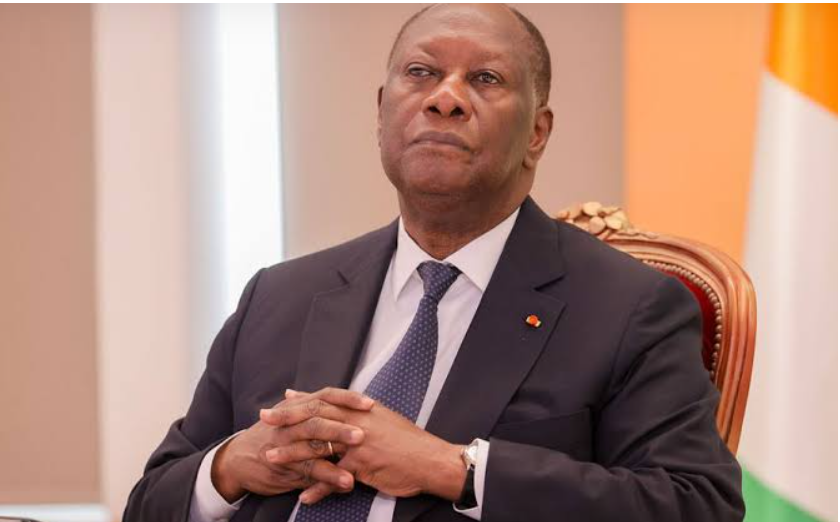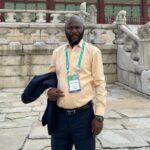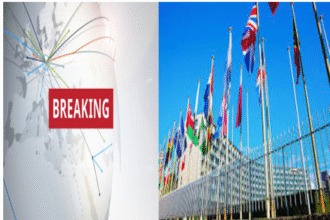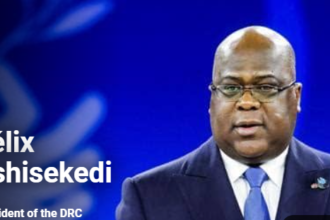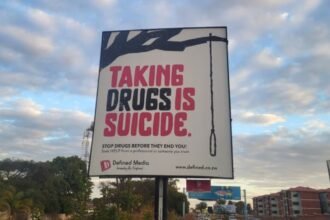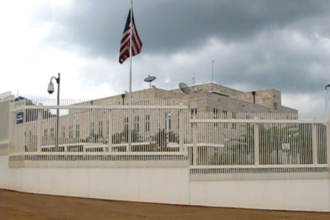By Amadou Keita
ABIDJAN, Cote D’Ivoire – On October 25th, in Côte d’Ivoire, voters will head to the polls. But this isn’t an election steeped in nail-biting suspense over who will win – the outcome, for many, is a foregone conclusion. Instead, it’s about a profound, national soul-searching, grappling with the legacy of a man once hailed as a savior, now seeking a controversial third term.
At the heart of this introspection is President Alassane Ouattara, 82, the architect of a remarkable economic transformation who now faces accusations of undermining the very democratic principles he once championed. His pathway to this third term is not due to the existing rules, but because he rewrote them.
From Unifier to Economic Tiger
A decade ago, the narrative around Alassane Ouattara was dramatically different. Côte d’Ivoire was a nation fractured, reeling from a brutal civil war and the defiant exit of Laurent Gbagbo. Ouattara, a calm, silver-haired economist from the IMF and World Bank, stepped into this chaos. He was the beacon of stability, the intellectual leader chosen to mend a torn country. Gbagbo loyalists had tried to disqualify him with the ultimate political insult – “You’re not even Ivorian!” – citing his northern roots and family ties to Burkina Faso. But the world didn’t buy it, the courts didn’t either, and in 2011, Ouattara took power to cheers, relief, and sky-high expectations.
And for a time, he delivered. Big time. Côte d’Ivoire blossomed, becoming West Africa’s economic tiger. For years, the nation boasted 7-8% annual growth, a testament to Ouattara’s focus on infrastructure. Gleaming highways crisscrossed the landscape, energy projects brought reliable power, cocoa exports boomed, and Abidjan was reborn as a vibrant regional hub. Foreign investors flocked in, drawn by the stability and growth. The IMF gave standing ovations. For a nation weary of chaos, Ouattara was the steady hand that turned the lights back on – literally and figuratively.
The Pivot and the Price of Stability
But the shine has dulled. In 2020, after promising to step down, Ouattara pivoted. Citing the unexpected death of his anointed successor, he leaned on a friendly constitutional court to reset his term count, arguing a new constitution meant a new start. He won that election, and now, at 82, he’s back for another run. “The foundation is laid,” he insists, “Now we build the future.” His platform echoes his past successes: more infrastructure, more jobs, better healthcare, digital transformation, and above all, stability.
The problem is, many Ivorians – especially the 60% under 25 – are asking: “What’s new?” The rapid growth hasn’t trickled down evenly. Unemployment stings, particularly among the youth who feel increasingly marginalized. Rural schools and clinics, despite the shiny new highways, still crumble. While Ouattara speaks in spreadsheets and grand projects, young voters yearn for fire, not formulas; for a vision that speaks to their immediate struggles, not just tomorrow’s GDP figures.
Geopolitical Shadows and a Lack of Real Opposition
Beyond internal discontent, Ouattara’s long tenure also casts a shadow over Côte d’Ivoire’s regional standing. His tight ties to France and the U.S. – including suspicions of hosting a key American drone base in the north – make him suspect in the eyes of Sahelian neighbors flirting with Moscow or railing against “neo-colonialism.” To them, he’s the West’s reliable partner – a stance that plays well in Paris and D.C., but less so in Bamako or Ouagadougou, where anti-French sentiment runs high.
Adding to the sense of an election pre-determined is the near-elimination of credible opposition. The Constitutional Court knocked out the heavyweights – Laurent Gbagbo, Tidiane Thiam, and former Prime Minister Pascal Affi N’Guessan. This leaves Ouattara facing a fractured field including Simone Gbagbo, the controversial ex–First Lady; Jean-Louis Billon, a businessman and MP; Ahoua Don Mello, Gbagbo’s old strategist; and former minister Henriette Lagou. But none possess the financial muscle, media access, or organizational machine to take on the ruling RHDP juggernaut.
This scenario hasn’t gone unnoticed by regional observers. Some within the West African region have lambasted the incompetence and perceived hypocrisy of ECOWAS (the Economic Community of West African States) for its silence on Ouattara’s third term, arguing that his actions risk inviting social unrest and even a military intervention, similar to what has plagued neighboring Guinea.
A Legacy in Flux
So, what does this election truly represent? It’s a testament to the intoxicating allure of power and the thin line between necessary leadership and overstaying one’s welcome. Alassane Ouattara, the architect of stability, now stands accused of undermining democratic norms for personal ambition. His economic miracle, while undeniable, is increasingly overshadowed by questions of equity and the quiet frustrations of a hungry, hopeful youth.
His legacy, once seemingly assured as the man who pulled Côte d’Ivoire from the brink, is now caught in a complex web of economic success, constitutional controversy, and regional discord. As Ivorians head to the polls, the votes cast may be for a president, but the question echoing is about the very soul of their nation and the future of its democracy.


